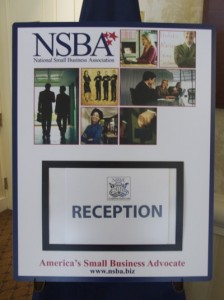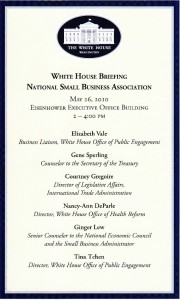The National Small Business Association published “Squandered Opportunities and Misplaced Priorities: Why Small Business is Too Big to Fail”, a report chronicling certain of the largest opportunities Congress and the administration missed in addressing the biggest challenges facing U.S. small businesses.
“There are more than 70 million people in the U.S. who work for, or run a small business – one-third of the voting population in the U.S.,” stated NSBA President Todd McCracken. “Despite that number, and the increased public profile of small business, not enough has been done to actually help small businesses survive the economic downturn.”
NSBA’s campaign, “Small Business: 70 Million Strong…And Voting” educates lawmakers, candidates and the public on the importance of small business to the U.S. economy. In the two years since the campaign was launched, the U.S. economy has plunged into recession, resulting in a new (at least in word, if not deed) recognition of the importance of small businesses to job creation. But speeches have not led to constructive policy.
“Squandered Opportunities and Misplaced Priorities” highlights Washington’s most disappointing failures, including the failure to enact long-term reauthorization of the Small Business Innovation and Research Program, the exclusion of small business credit card accounts from the protections afforded by the CARD legislation; failure to correct the distorted incentives of the estate tax and the failure to ensure fair labor law processes. The report compares the cost of addressing these key small business priorities to the cost of other initiatives of the administration, such as the Troubled Asset Relief Program (TARP) and health-care reform legislation. The cost differential is staggering: $2.9 trillion spent on major initiatives vs. $358 billion, the estimated cost of small business programs called for in pending legislation.
“Despite our very-well earned frustration at these many missteps, NSBA’s small-business members still believe there is a way forward,” stated NSBA Chair Keith Ashmus and co-founding partner at Frantz Ward, LLP in Cleveland, Ohio. “However, more can and must be done—small business will no longer accept rhetoric in the place of action.”

